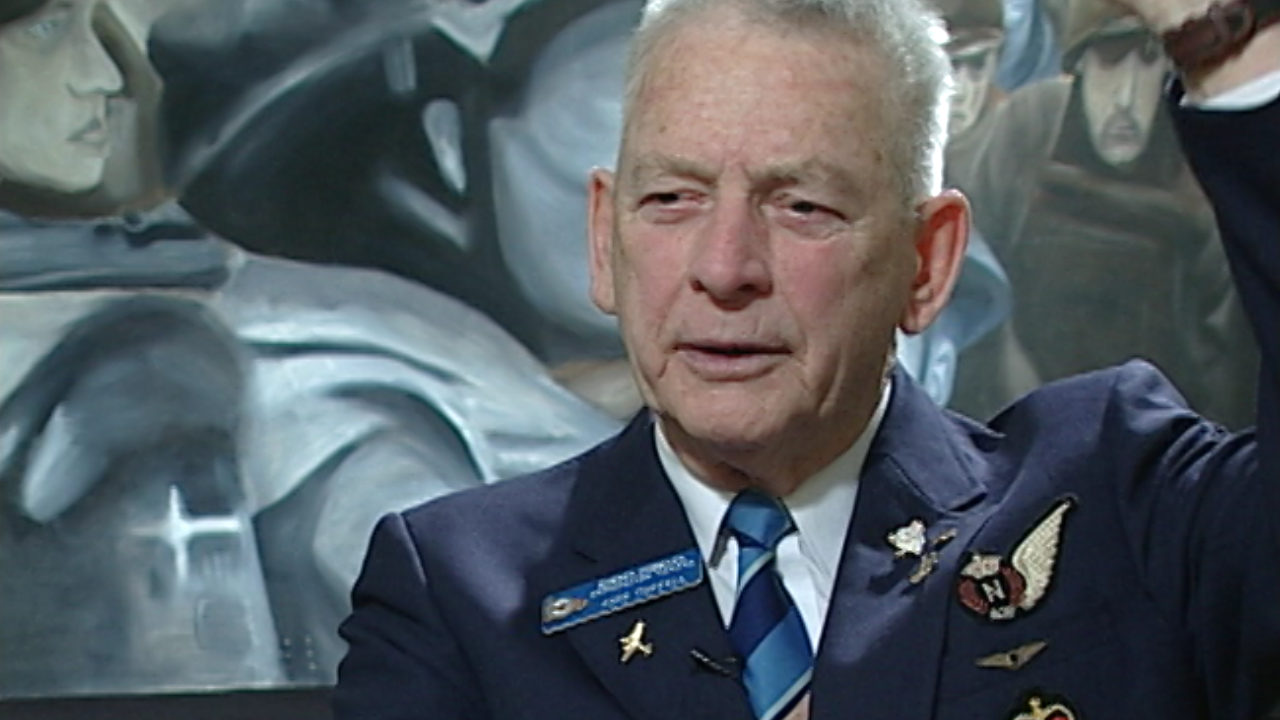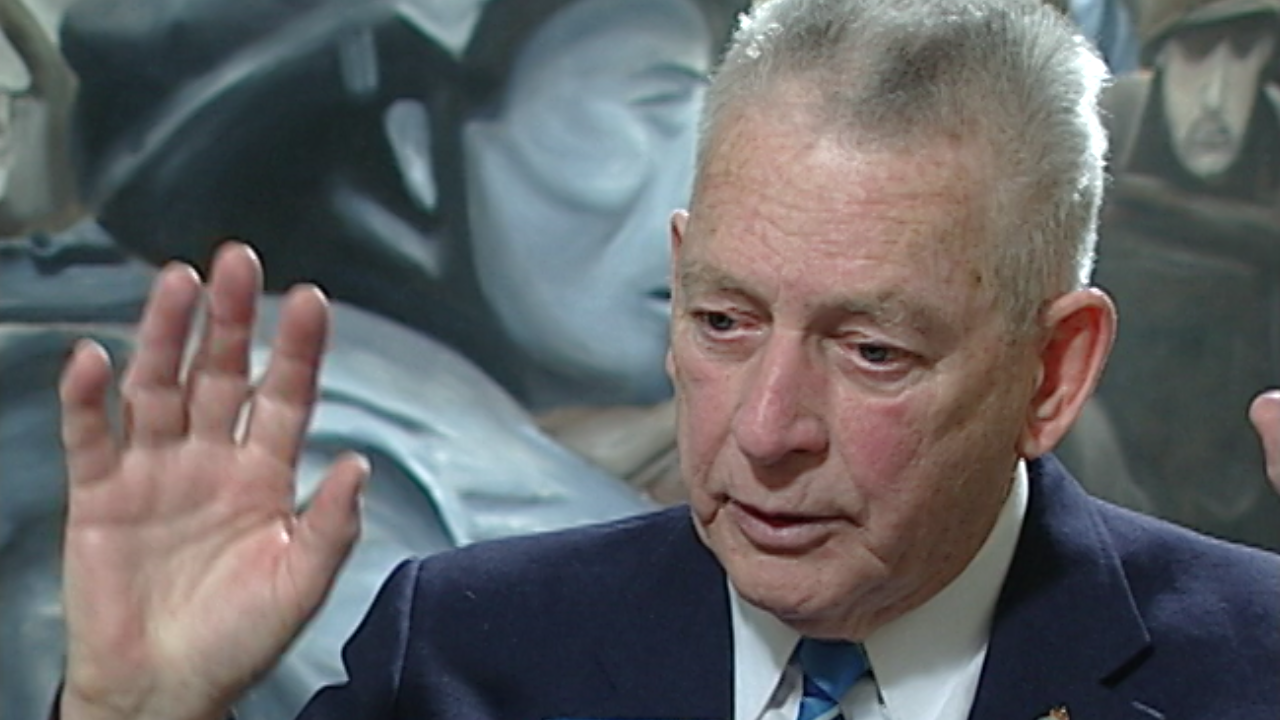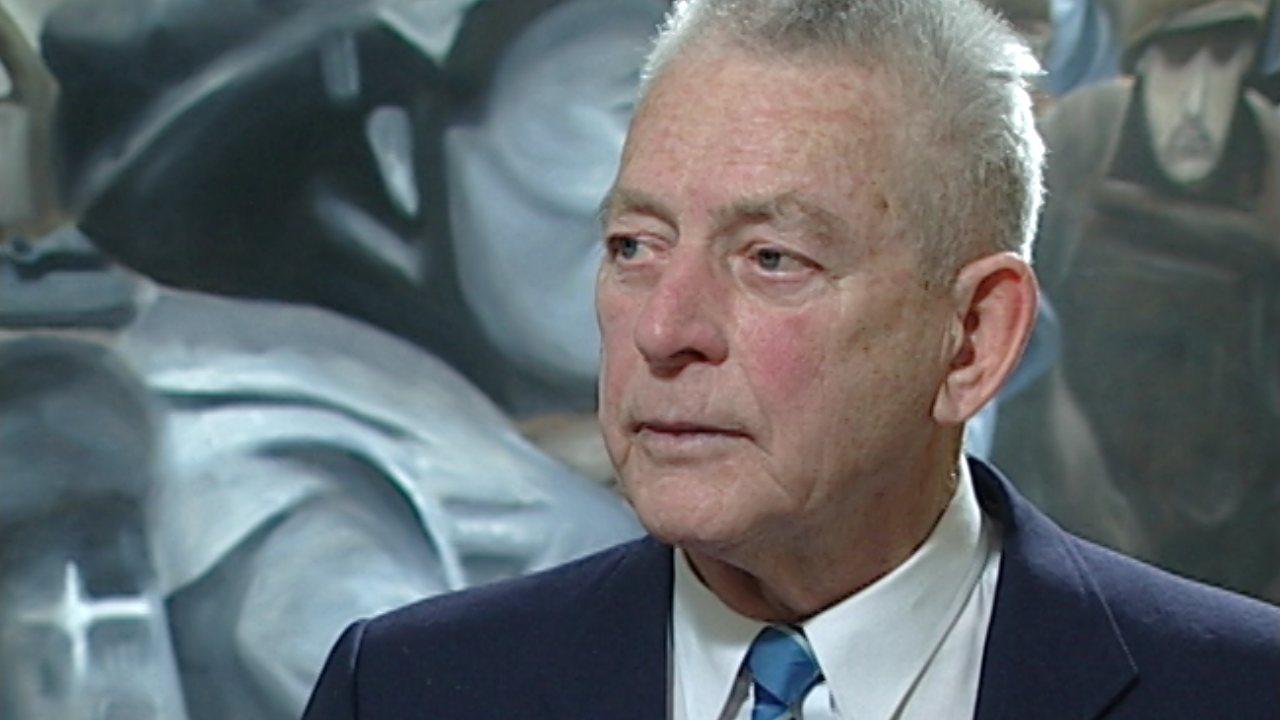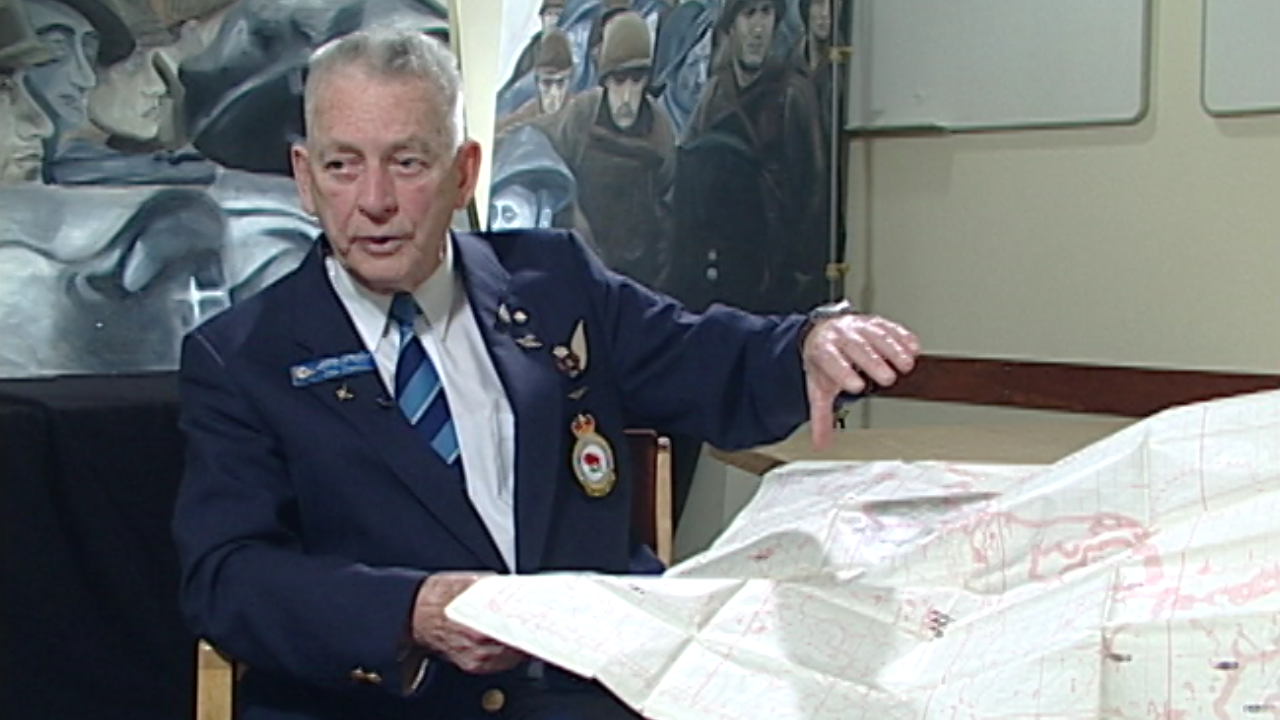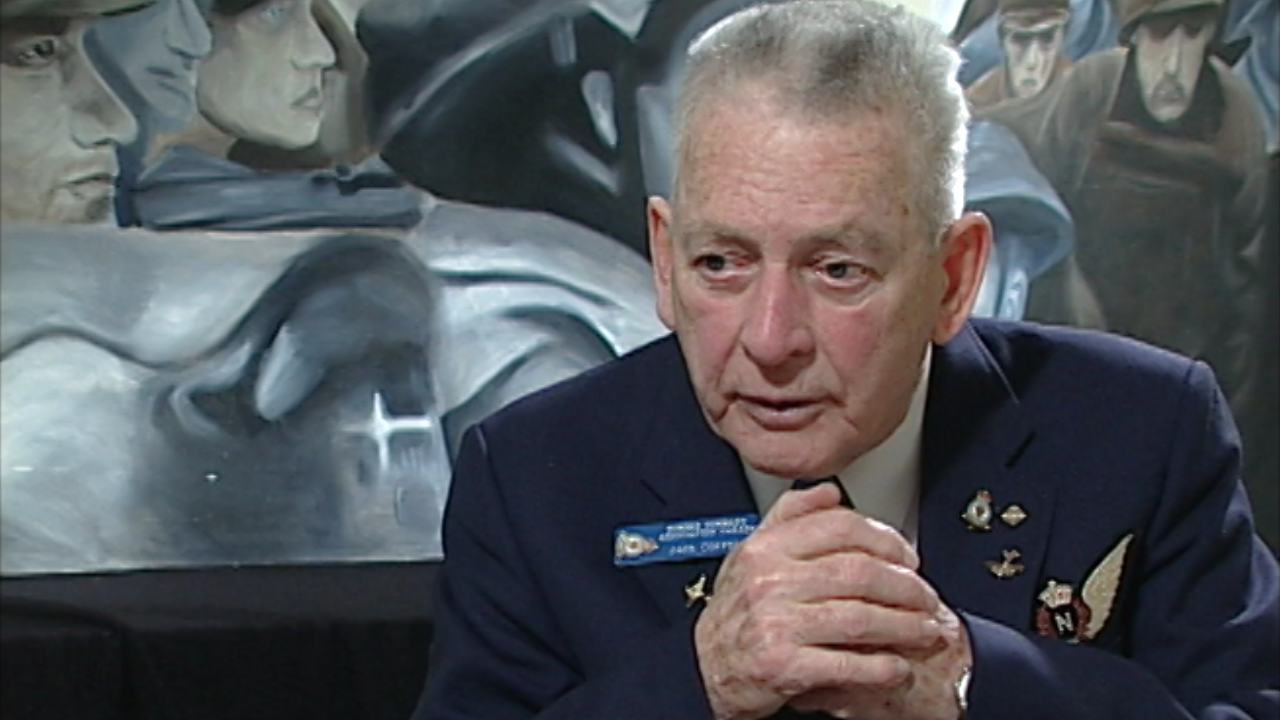"...it had to be right."
Heroes Remember
"...it had to be right."
Transcript
I was very superstitious, and I had a, a funny attitude about
this. Of course if anybody asks you, I was, I was terrified, but
then, well when were you terrified the most? No, from start to
finish, I was terrified, in other words you were always terrified
That, that has to be understood. So, you go in with that base,
and then now you get scared after that. And so, my attitude about
this was more, I was more concerned with doing it right
than I was doing it dead. And, as a navigator, I had that
responsibility, and I recognized that, and therefore I was the
pilot's, the pilot was the guy, he was the real leader of this
thing, but he, his right-hand man was the navigator and, you know
he depended, and therefore it had to be right. As a navigator,
you're there 100% of the time and you're telling the pilot, you
know, exactly what speed he's supposed to be going and what
dire-, and what, exactly what course he's on, and so on. And so
you are re-, as the navigator, you are responsible for getting
him there at exactly, within 30 seconds of the, of the, of the
designated time. You, you start off by saying him, "Skipper,
we're two minutes early." He immediately knows that
something else, something's going to happen. So, you've
introduced subject to him and he's prepared to do whatever you
want him to do, as the navigator. Now you, you could turn left
for 45 degrees and two minutes and, and then, or it doesn't
matter you know, it's, you choose it, and. But the equilateral
triangle was a very, very favourite tool. In other words,
you used a lot of this to, to get your time, either. Now, if
your was, if it was, if you were two minutes slow, now you had to
say, tell him to increase his speed. Let's say that the speed
was, let's say that the designated speed is going to be
180 knots, or nautical miles per hour. And, and you, for some
reason or other, you had to maybe climb up or get right around
cloud, or whatever, and you became slow, then you said to him,
"Increase your speed to 195 for the next five minutes.", or you
know, et cetera, et cetera. And you would tell him, and he would
do it.
Description
Mr. Coffell's reflections on being a navigator.
John ( Jack ) Coffell
Mr. Coffell was born June 1, 1924, in Moncton, New Brunswick. At the age of two, he lost his mother. His family moved to Amherst, Nova Scotia, where he lived until he enlisted. With his father unemployed, and an unemployment rate of 50 percent, he was dertermined to pass Grade 11 so he could enter the Royal Canadian Air Force. He eventually qualified as a navigator and went overseas to join 429 Squadron, 6 Group. Mr. Coffell's theatre of duty was Northern Europe. At the end of his service overseas, he returned to Canada aboard the Queen Mary.
Meta Data
- Medium:
- Video
- Owner:
- Veterans Affairs Canada
- Duration:
- 02:48
- Person Interviewed:
- John ( Jack ) Coffell
- War, Conflict or Mission:
- Second World War
- Battle/Campaign:
- Bomber Command
- Branch:
- Air Force
- Units/Ship:
- 429 Squadron
- Rank:
- Flying Officer
- Occupation:
- Navigator
Related Videos
- Date modified:



